
I just returned from my 2nd trip to Lebanon after going for the first time 2 years ago. I actually felt emotional the day I was departing. After 2.5 weeks in Lebanon, I landed in the beautiful, orderly city of Boston as my first port of entry into the US for a Travel Blogging Conference. I have to admit that it was initially refreshing to come home to serenity compared to the often chaotic streets of Lebanon. But yet, I felt a sort of void, a disconnect, a withdraw of some sort. This feeling has happened after returning from certain countries and not so much in others. As I walked the clean, perfectly manicured green streets of Boston, with the smily Americans jogging by, my heart desired to be back in the ancient world of Lebanon. I have been drawn to this region of the Mediterranean and Middle-East for the past decade, finding any excuses to return annually. I have endless tips and stories to share. But first, I’d like to share Practical Tips on Traveling to Lebanon so that you will be fully prepared once you embark on your journey to one of my favorite places in the world.
Most commonly asked question is: “Is it Safe to Travel to Lebanon?” I needed a whole other post to shatter misconceptions, which you can read here. There are many words and feelings that come to mind when I think of Lebanon. Just to name a few: genuine human connection. Familial bonds. Passion in local ingredients, cooking and cuisine of Lebanese food. The warm hospitality and the ever so generous sharing among everyone. Party until the sunrise. Wine tasting with spectacular views. Most mind-blowing cave (Jeita Grotto). Fresh seafood. Beach bumming. The fluid connection between nature and the outdoors. Naturally, Lebanon has become a 2nd home.
Practical Tips on Traveling to Lebanon
With over 180 countries in the world (depending who you ask), most people can only take off once a year for vacation. So why Lebanon?
Is Lebanon the Destination For You? Only if you love:
- Learning about Religion, History and Culture:
- The earliest evidence of civilization in Lebanon dates back more than 7000 years (predating recorded history).
- The birth of Christianity is from this region and an estimated 40% of the Lebanese people are Christians (Greek Orthodox, Armenian Catholic Christians, Melkite and Maronite Christians).
- Note: Catholicism and Christianity is often intertwined as one in the same to the Lebanese (which is often distinctly divided in the US into specific sects)
- The Outdoors: Spend your days bathing in the sun, camping in the mountains, hiking in dozens of it’s hidden trails of Chouf, Tannourine and more.
- Watersports: Surfing, Kitesurfing, Windsurfing, Paddleboarding, Swimming, Kaying, Jetskiing, Boating, Sailing, Spearfishing and Swimming
- Gorgeous waterfalls
- Wine: Lebanon has approximately 50 wineries
- Did you know that Lebanon is one of the oldest wine-producing countries in the world? With it’s cool climate in the mountainside and sea breeze, it paves way for impressive wine year after year. It is estimated that Lebanon produces over 8 million bottles a year with half exported to Europe, Canada and USA.
- Most popular wine trail is from Bekaa Valley to the mountains of Batroûn.
What I love about Lebanon, among the many countless things is the variation in topography and climate. When looking at a map, you can see that Lebanon is one of the tiniest countries in the world (smallest in Asia), yet there is so much to do. You can virtually drive from the south to north within 5 hours. The narrow coastal plain along the Mediterranean Sea is 225 kilometers long (139.8 miles). The country shape and climate resembles California: narrow at its width and longer at its height, with its west curved along the coast of the Mediterranean Sea. Drive 30 minutes east from the sea and you’ll reach the mountains.
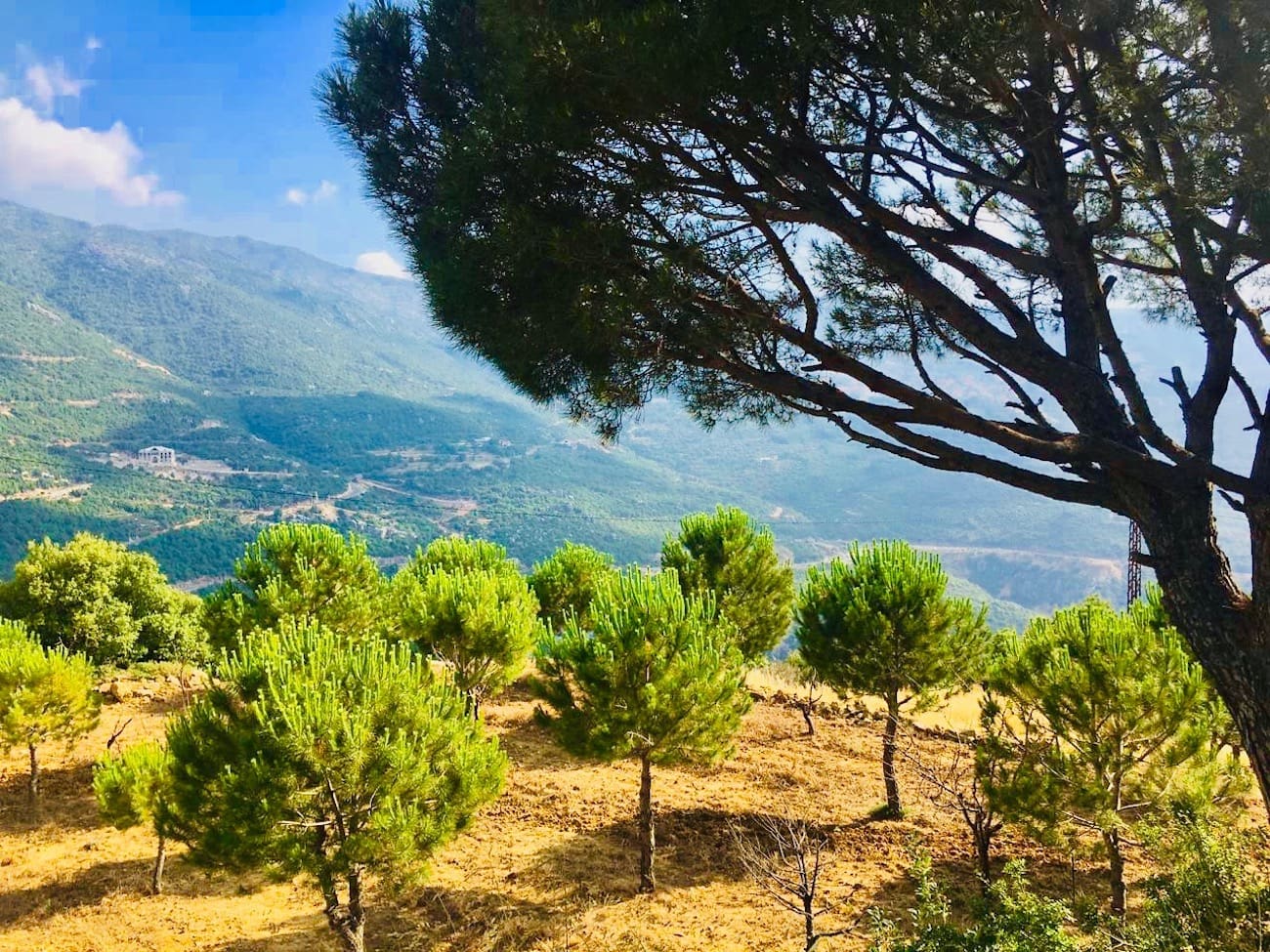
Tips on Preparing & Booking Your Trip to Lebanon
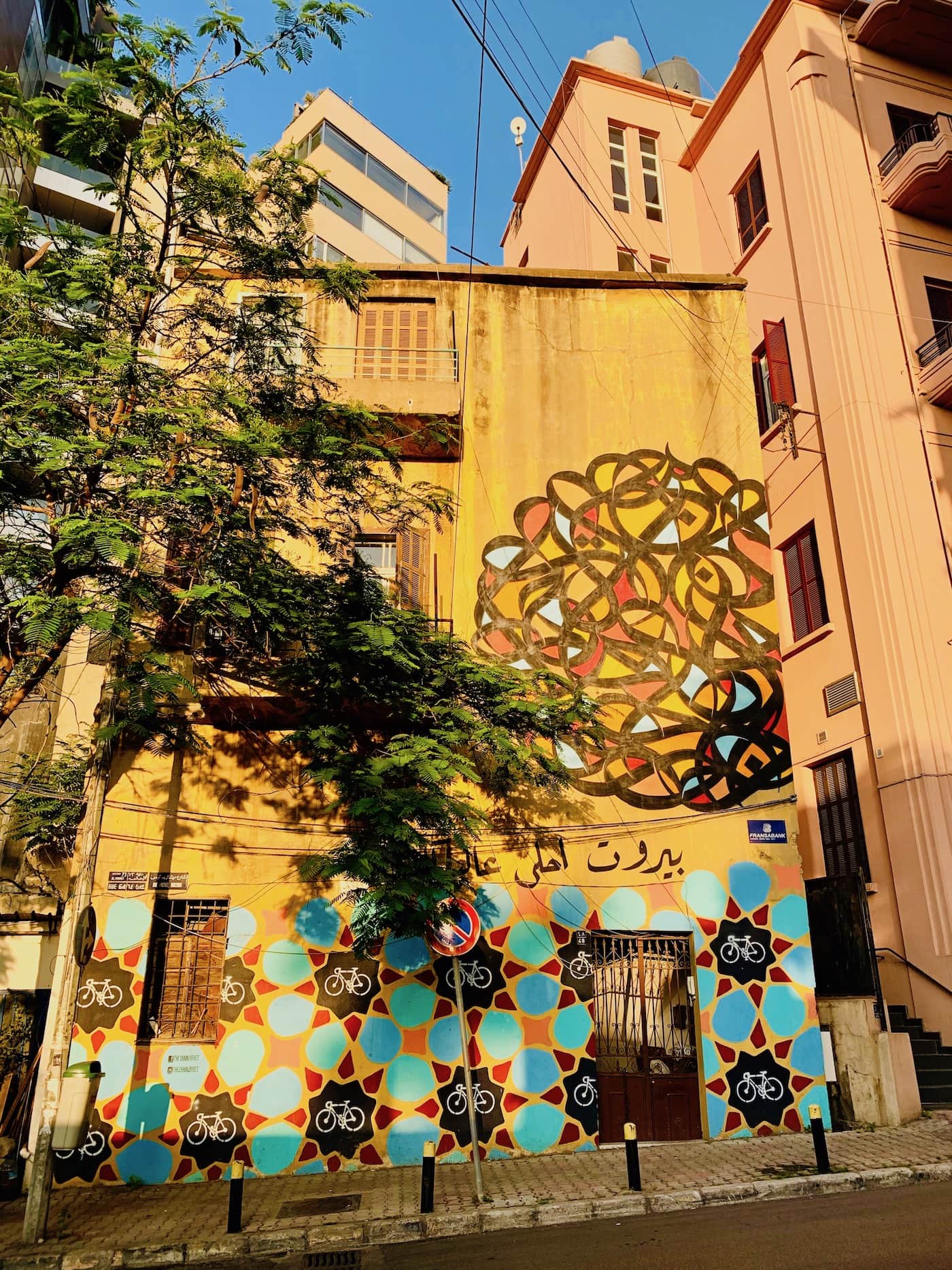 When is the best time to go? Really you can’t go wrong any time of the year. Though I personally recommend May, June and September due to the perfect 75 degree Fahrenheit weather and all the exciting festivals and events going on throughout the country. July & August can get hotter and more humid reaching 90 degrees and more crowded due to summer breaks but still a beautiful time to go. The winter months are just as beautiful, especially if you want to go skiing. But since I’m purely a sun and beach lover, I prefer the early or late summer months.
When is the best time to go? Really you can’t go wrong any time of the year. Though I personally recommend May, June and September due to the perfect 75 degree Fahrenheit weather and all the exciting festivals and events going on throughout the country. July & August can get hotter and more humid reaching 90 degrees and more crowded due to summer breaks but still a beautiful time to go. The winter months are just as beautiful, especially if you want to go skiing. But since I’m purely a sun and beach lover, I prefer the early or late summer months.
Booking Your Flight
As usual, I prefer Skyscanner for my search to flights across the world. Qatar and Emirates have many flights to Lebanon, connecting in Doha or Dubai. There are many European and American airlines that fly the route too.
You may be asked to show your return flight ticket from Lebanon at your departure airport or when you arrive to Beirut. Although I have not been asked to show proof, it is a known thing that you should have your flight booked ahead of time out of Lebanon.
Arriving to the Airport
The Beirut airport is rather small. Getting through immigration should take no more than 10 minutes. What they are most concerned about is whether you have been to Israel or not. They will unlikely ask, but instead, look through your passport multiple times. With political conflicts, it is highly unlikely they will let you in the country if they see you have been. If you have been though, Israel unlikely would have stamped your passport. Instead, provided you with a small slip upon arrival. However, they might have put a small colored barcode sticker on the outside of your passport that you would never know is from Israel. From what I read, these barcodes tell your potential ‘threat level’ to their government. It is best to remove these stickers if you have ever been as some Lebanese Immigration officials know about it and will refuse you entry.
If you are refused entry, you will have to book a flight back to your last destination or just leave asap.
Taxi Out of Airport
I was able to connect to wifi on arrival at the airport but once I went to the outside, wifi was gone. If you are able to connect to the internet, I suggest calling an uber as those prices are much more reasonable and regulated. There will also be at least 10-20 taxi drivers outside you can safely take. It should not cost more than $20-23 for a ride from the airport to anywhere in Beirut. Know what you should pay ahead of time so you do not get ripped off. Many taxis do not have meters so you have to negotiate ahead of time.
Visa
US citizens do not need a visa to Lebanon. For other nationalities, check.
People of Lebanon
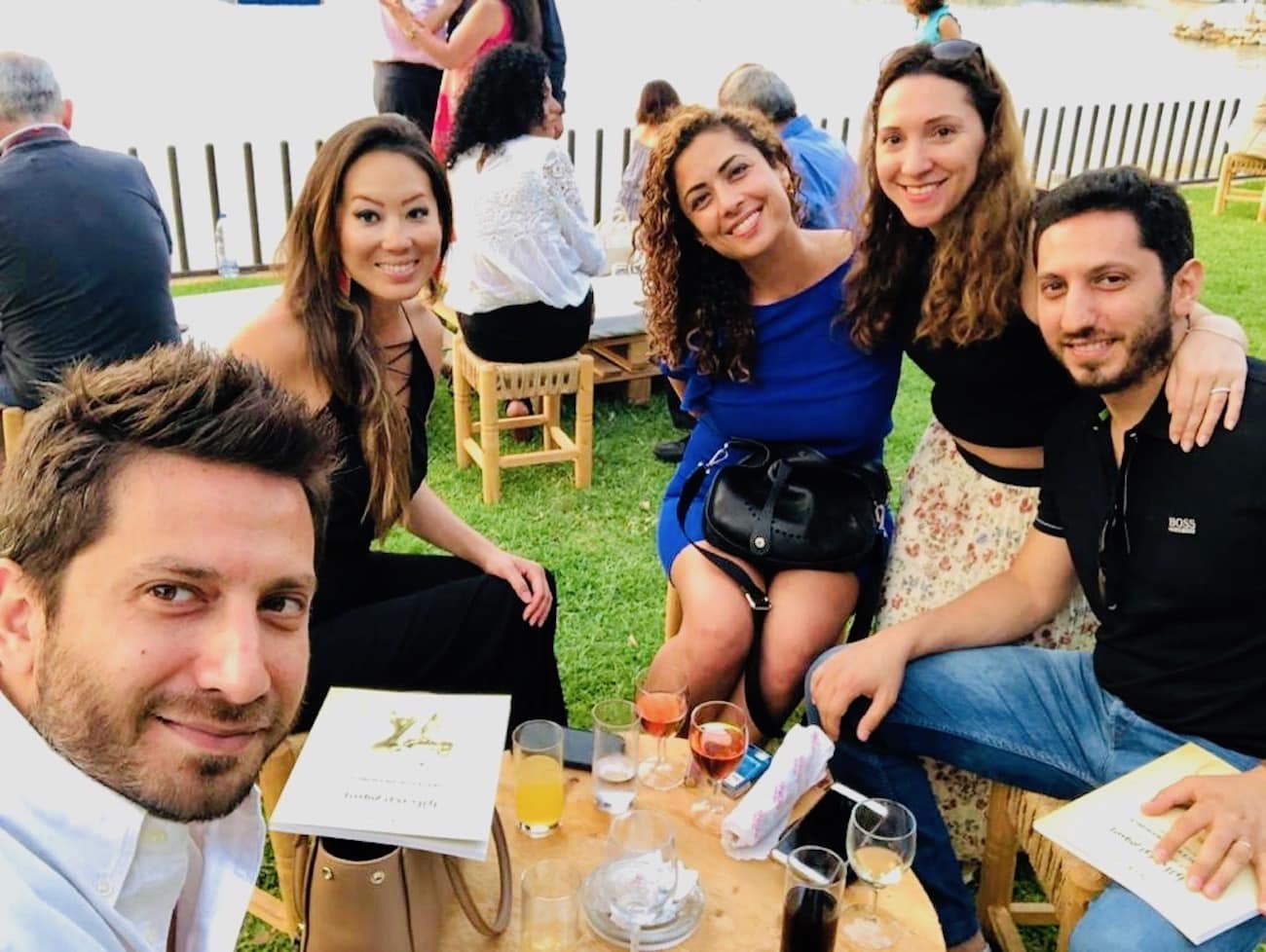 Lebanon has been named the “Paris” or “Switzerland” of the Middle-East. This became a reference prior to the civil war (1975-1990). During a thriving economy, a global presence and a diverse range of people from around the world living and working there. It has been reborn again in the past decade. Parts of Lebanon feels like you are in Europe. The physical element as well as the open attitude of many people.
Lebanon has been named the “Paris” or “Switzerland” of the Middle-East. This became a reference prior to the civil war (1975-1990). During a thriving economy, a global presence and a diverse range of people from around the world living and working there. It has been reborn again in the past decade. Parts of Lebanon feels like you are in Europe. The physical element as well as the open attitude of many people.
Communicating and Languages Spoken in Lebanon
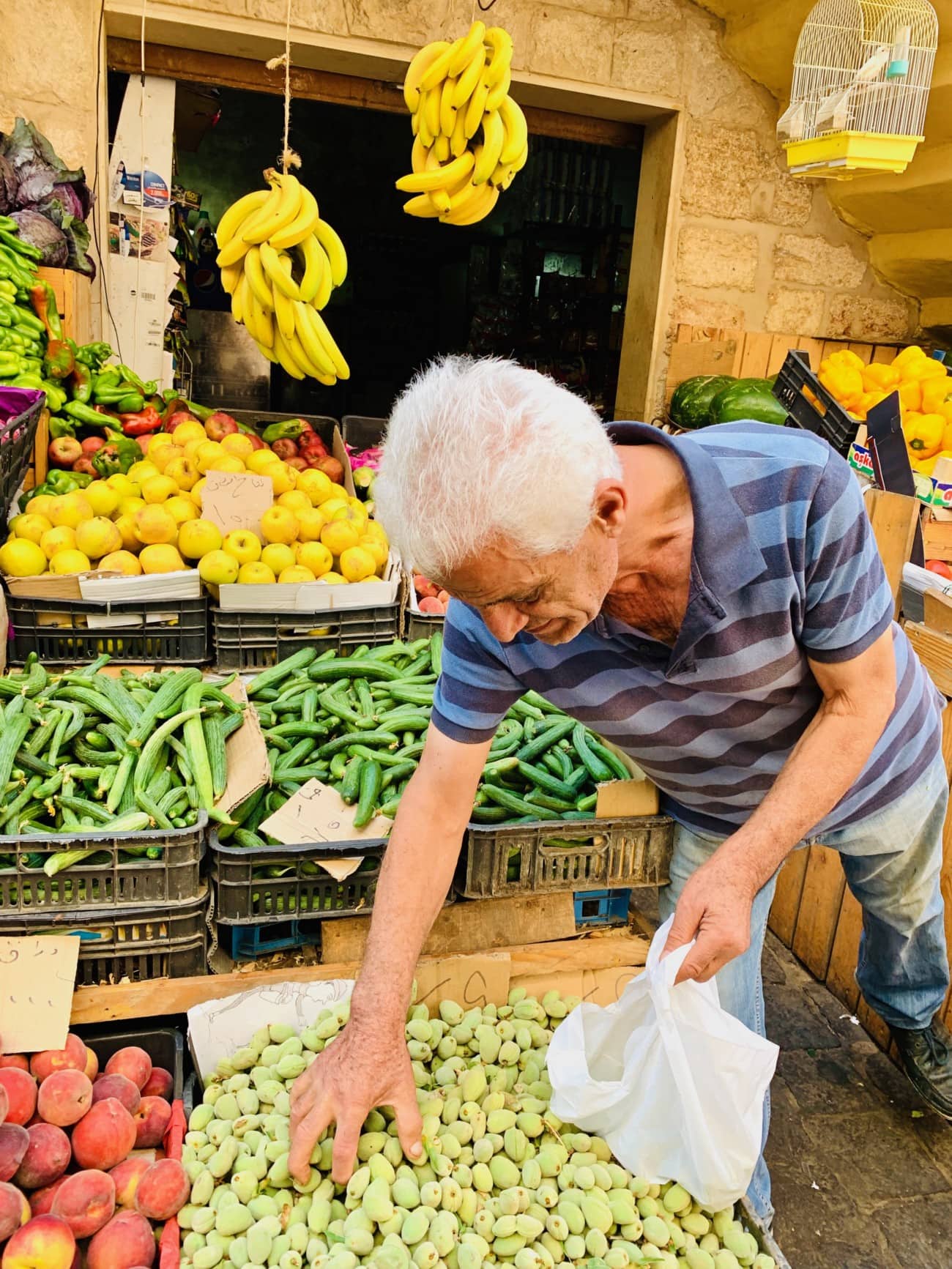
Arabic and French are the first languages taught in schools.
English is taught more loosely as a 3rd language in schools and most people you encounter will speak enough to get by. The reality is that though the Lebanese people speak a mix of the 3 languages mentioned, they have formed their own version which many joke as the unofficial “Lebanese language”. It is common for them to mix Arabic, French and English all into one sentence.
Depending on the region they grew up in, they also have their own slang, such as the case in Batroûn, where they tend to add “Eish” to the beginning of sentences that really doesn’t mean anything. But as you spend more time there, you start to distinguish the differences.
A few basic phrases to know:
- “Yalla”: This is the most important phrase to use while traveling in the Middle-East. It means “Let’s go!” or “Let’s do it!”
- “Marhaba”: Hello, though most people just say “Hi”
- “Shukran”: Thank you
- “Habibi”: It’s a term of endearment meaning “my love”, though everyone uses it, including family members, male to male, female to female.
- “Kee-Fúk“: How are you? to a Male; “Kee-Fèek” is to a female.
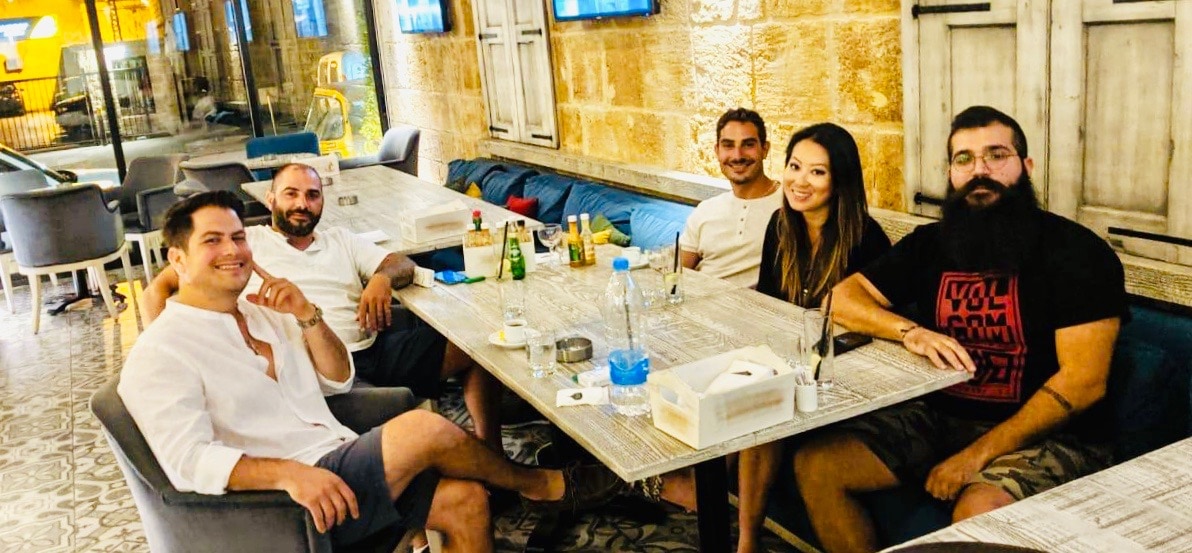
WhatsApp is the most Common Form of Communication
The most common way for people to communicate via text is through WhatsApp. If you are exchanging phone numbers with a new friend, or even communicate with your accommodation host, WhatsApp will likely be how you’ll communicate. This is the case really in most of the world so it’s a useful app to install if you haven’t already. Another common way to communicate in Lebanon is for people to leave voice messages through WhatsApp instead of text.
Ethnicity, Religion and Politics in Lebanon
With a population of close to 7 million, approximately half are Lebanese while the other half are consisted of recent immigrants and refugees from Syria, Palestine and Iraq since 1975 (there is an estimated half million who are unregistered). Prior to that, there were a wave of Armenian refugees since the genocide of 1915. Though there is only an estimate of 156,000 Armenians today (4% of the population), their presence is still very much part of Lebanese history in the past century. With a political seat in government, Armenian churches, Popular streets like Mar Mikhaël and Gemmayzeh named as “Armenia Street” and an international diaspora that considers Lebanon home.
There are 18 recognized religious groups in government. The most common being Maronite Christians, Melkite, Greek Orthodox Christians, Armenian Christians/Catholics, Sunni Muslims, Shi’a Muslims and Druze. Lebanon is a parliamentary democracy or unitary multiparty Republic that includes confessionalism (a de jure mix of Religion and Politics). High-ranking offices are reserved for members of specific religious groups. This is an effort for diplomacy, a fair demographic distribution and to deter sectarian conflict, agreed upon after the Civil War:
- The President by law has to be Maronite Christian
- Prime Minister a Sunni Muslim
- Speaker of the Parliament a Shi’a Muslim
- Deputy Prime Minister and the Deputy Speaker of Parliament Eastern Orthodox
It is important to understand the religious and cultural dynamics of Lebanon and most of the Middle-East. It’s different than it is in the US or Europe. An individual’s religion is often tied to their cultural identity. Similar to the situation of Jews. Though someone may not be pious or even believe in God, their family’s religion (that has typically spanned for generations) is part of their identity. So people you meet may ask “What religion are you?” Which is not a common question in the west. They may even be confused if you tell them that you are not religious at all or belong to a religion.
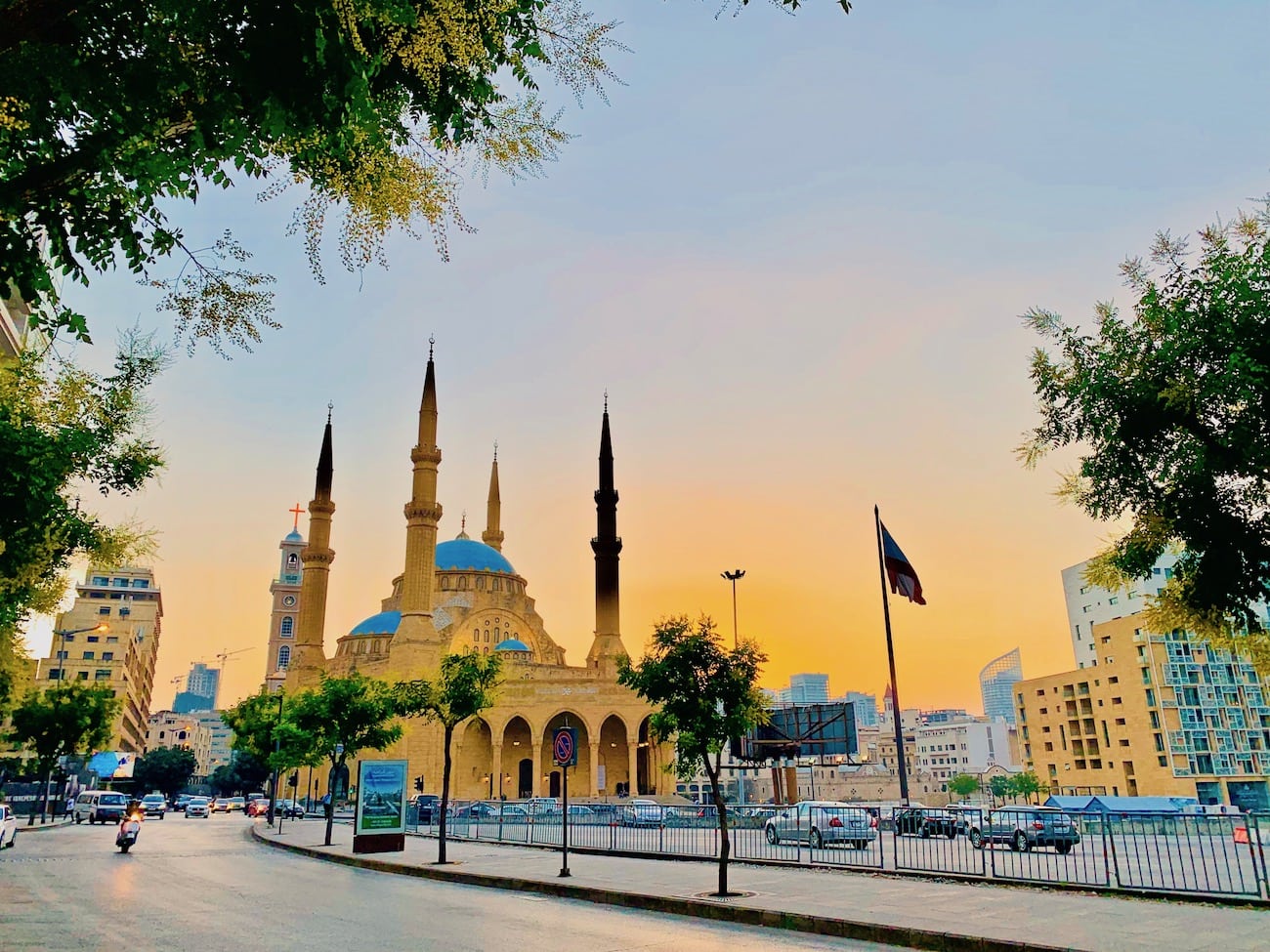
Marriage in Lebanon
Civil marriages are not recognized or allowed in Lebanon. As in, one must get married through their religious court. There is no option to get married in a non-religiously affiliated, civil/government court as we do in the west. Therefore, for those that do not wish to be married in a religious institution will fly to another country (oftentimes Cyprus, just 45 minutes away) for a ‘civil marriage’. They then show the civil marriage certificate to the Lebanese government and they will then be recognized as an officially married couple in Lebanon. Though most travelers are not going to get married in Lebanon, it’s a vital part of their society to note.
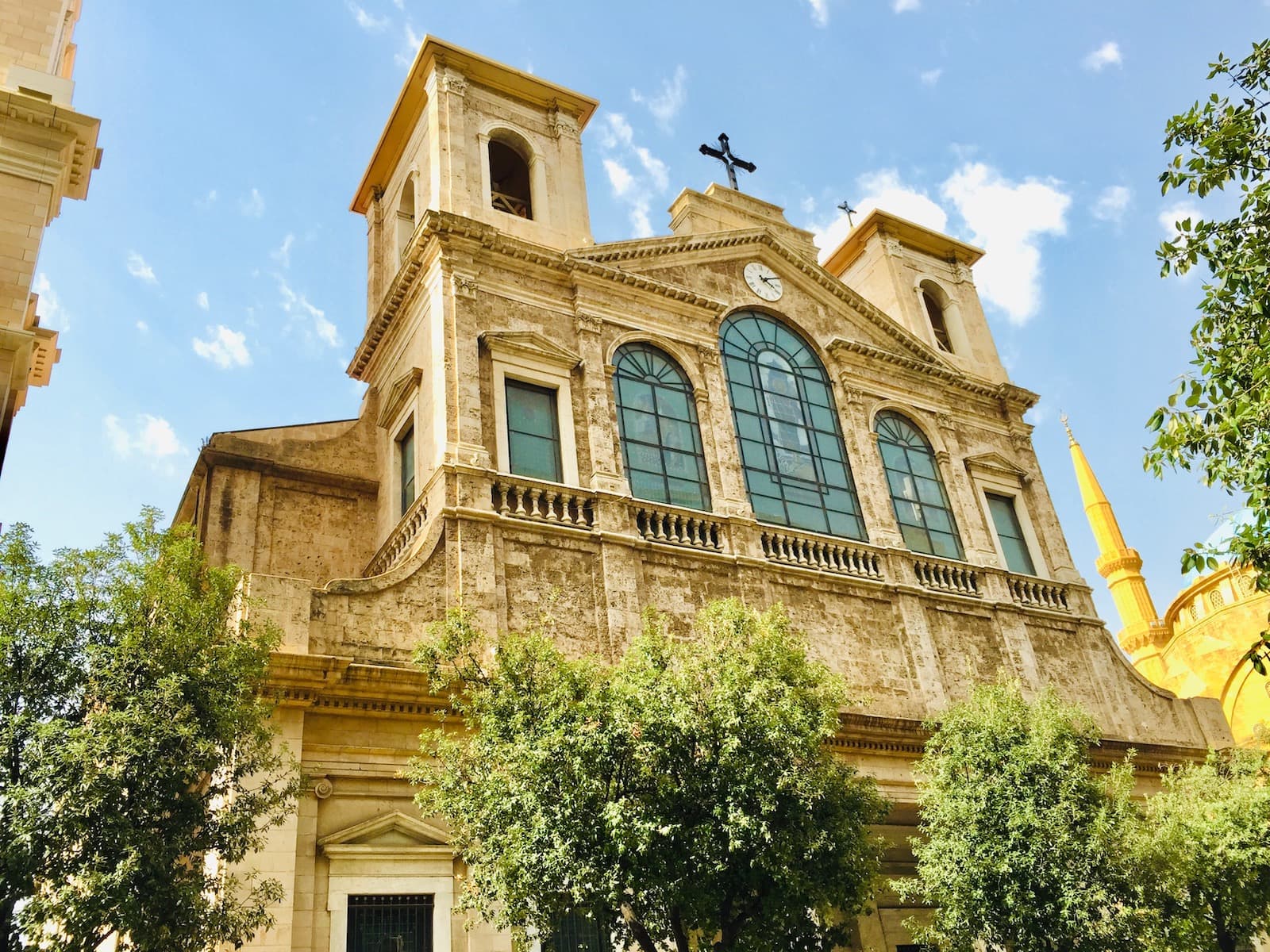
Many Lebanese People Do Not Consider Themselves “Arabs”
This is a controversial topic among the Lebanese people. While Lebanon is listed as one of the 22 countries of the “Arab World” or “Arab States”, many Lebanese Christians consider their ethnic roots from Phoenician (European) origins. Through arabization, the Arabic language has been adapted and spoken though it does not make them “Arabs”. Others will debate that they are in fact “Arab Christians”. This is a topic of conversation people would gladly share their views on as they differ from person to person, family to family.
Note: People are a lot more open to discuss politics, religion and controversial topics. Political correctness is really not of concern to many.
Homosexuality
Technically by law, it is illegal to “go against nature and have sexual relations with the same sex”. However, it is rare that they actually fine or jail people for it. They basically turn a blind eye, but the reality is that people are also not parading on the street, open about being gay. Though Lebanon is more liberal than it’s neighbors, strong familial ties, religion and traditions also mean that a lot of the older generations have a tough time accepting homosexuality as something of the ‘norm’. And even if they do, many are more concerned of what society and family/friends think.
There are bars and clubs that are geared for LGBTQ and there are rarely police that actually take the time to crack down. The takeaway is: it’s better not to show affection in public as same-sex couples while traveling in Lebanon.
The Lebanon-Israel Conflict
The beef between the countries of Lebanon and Israel, known as the “South Lebanon Conflict” is really between political parties. Hezbollah, one of Lebanon’s most powerful political groups (with strong ties to Iran) has had conflict with Israel though it does not represent the majority belief of the people. Many Lebanese people I spoke to, especially the younger generations have said that they wish the conflict would go away as they have met Israelis while traveling in Europe or Sri Lanka (a common destination) and see so many similarities between their 2 cultures.
If you show any proof that you’ve visited Israel on your passport, the immigration officers will likely not allow you entry into Lebanon.
Lebanese Society & Class Systems
The reality is that every society and country in the world has class systems. Some cultures care more than others. It also depends on how one was raised. The reality is that the class system is widely discussed in Lebanon. Many people, especially the older generations do not necessarily see themselves as ONE people. There are common discussion of distinguishing who is truly Lebanese, who’s last names reveal that they are of Syrian, Armenian and Palestinian descent. Specific religious sects are also distinguished as well as regions people were born in. Personally I see all people as equal but since I am a visitor, I am also very interested in learning about the way people view these topics.
It’s part of the ethnography, the anthropological approach in my travels. I simply listen and ask questions respectfully as a fly in the wall.
Migrant Workers in Lebanon
Migrant workers from much poorer areas of East Africa, South Asia and Southeast Asia such as the Philippines, Sri Lanka, Bangladesh, Nepal, Ethiopia, Eritrea, Yemen come to Lebanon to work. Though wages in Lebanon are considered low on a global scale, these workers get paid more to work here than their home country. Typically their room and food is covered so everything they make is sent back to their families. As a visitor, it may take a few days to get use to this dynamic that most people avoid talking about. Frankly, it’s become 2nd nature to them so there is nothing to address. But it is very much everywhere and in your face. It is clear that the country treat them as the lower class.
Most middle class to upper class families will have at least one maid in the house that cost them approximately $150-400 per month.
There’s no way to know how they are treated in private, though it is pretty obvious that many locals do not see or treat them as equals. Just as a suggestion, make a small effort to be courteous to everyone despite their “class” or religion. Simply smile and treat them as equals. It can brighten up their day, especially in a country so far from home for them.
Transportation Around Lebanon
Taking Public Transportation
Public transportation in Lebanon is below average although it’s doable when going to major cities along the coast. You just have to prepare for possibly doubling the time to your destination. Schedules can sometimes be found online or at the bus station ahead of time (though not very organized). The bus drivers do not always speak English but you can mention your destination and they will drop you off.
Ie: If you want to be dropped off in Batroûn, hop on the bus headed to Tripoli and just ask the driver to drop you off as they pass Batroûn.
Taxi VS Uber
Taxis are available in all the main areas though uber is a lot safer, more reliable and with fixed prices. Taxis are safe to take though as long as you know how much you should pay. Negotiate ahead of time as they will likely try to charge you double to triple what it should actually be. Ask anyone around how much it should cost from A to B and they will gladly tell you.
Shared taxis are also an option. It may take you slightly longer to get to your destination but it will be a fraction of the cost of getting a private taxi. For day trips, it is common for people to hire a taxi for the day as calling a taxi or uber in secluded locations may not be available. Cost can be anywhere from $100-150 per day. It’s better to ask a local to book for you instead of booking yourself as a foreigner.
Should You Rent a Car in Lebanon?
Lebanese driving is quite insane. I’d put it on a scale of 9/10 – comparable to driving in India, though not as crowded. However, renting a car and driving is possible if you consider yourself an adaptable, aggressive driver. You may need 2 days to get use to it. Renting a car is practical as public transportation is not reliable or very efficient. Taxis can get incredibly expensive so if you want full freedom to explore, consider renting a car.
Currency Used in Lebanon
The 2 most common currency used is the Lebanese Lira/Pound and the US Dollar which is 1500 Lira to $1 USD. You can use either and credit cards are accepted in most places except small markets or street stalls. I would as usual, recommend using your credit card as much as possible to gather points as well as to get the best possible exchange rate. (And of course, use a credit card with no foreign transaction fee)
How it the Wifi Connection & Electricity?
Though parts of Beirut can look and feel like a first world country, in reality it’s still a developing country. The Electricity and Wifi situation reflects this It is common for electricity to go out at any time of the day, usually just for a few minutes. People are so use to it, you just shrug it off and go about your business until it’s back on.
I would highly recommend buying a sim card after arriving in Lebanon. This way, you have access to phone calls when there is no Wifi access as you will need it to reach friends and to call taxis. Over half of restaurants, bars and hotels will have wifi access for you to use. Though, wifi can still be spotty unless you are at a five star hotel.
What to Pack in Your Luggage
 As mentioned above, the variation in topography in Lebanon is one of its many beauties. There is really no wrong time to visit Lebanon but I prefer the warmer months of April to October. Specifically, May, June and September where you avoid the massive crowds of summer break as well as the more intense heat in the core of summer months. You can go from the sea to mountain within 30 minutes. Go from surfing in the morning to skiing in the afternoon. What to pack?
As mentioned above, the variation in topography in Lebanon is one of its many beauties. There is really no wrong time to visit Lebanon but I prefer the warmer months of April to October. Specifically, May, June and September where you avoid the massive crowds of summer break as well as the more intense heat in the core of summer months. You can go from the sea to mountain within 30 minutes. Go from surfing in the morning to skiing in the afternoon. What to pack?
- Bug Spray
- Hiking Shoes
- Bathing Suit
- Water Shoes: As beautiful as the beaches are, most are filled with pebbles and rocks so it will be easier for you to walk and swim with water shoes
- Small First Aid kit: Pepto bismol, bandaids (though you could also buy this there)
If you plan on spending some time dining and enjoying the best nightlife Beirut has to offer, be sure to pack your sexiest, chicest going out clothes. People (both men and women) definitely doll themselves up for nights out in town, even more stylish than in Hollywood! So dress to impress!
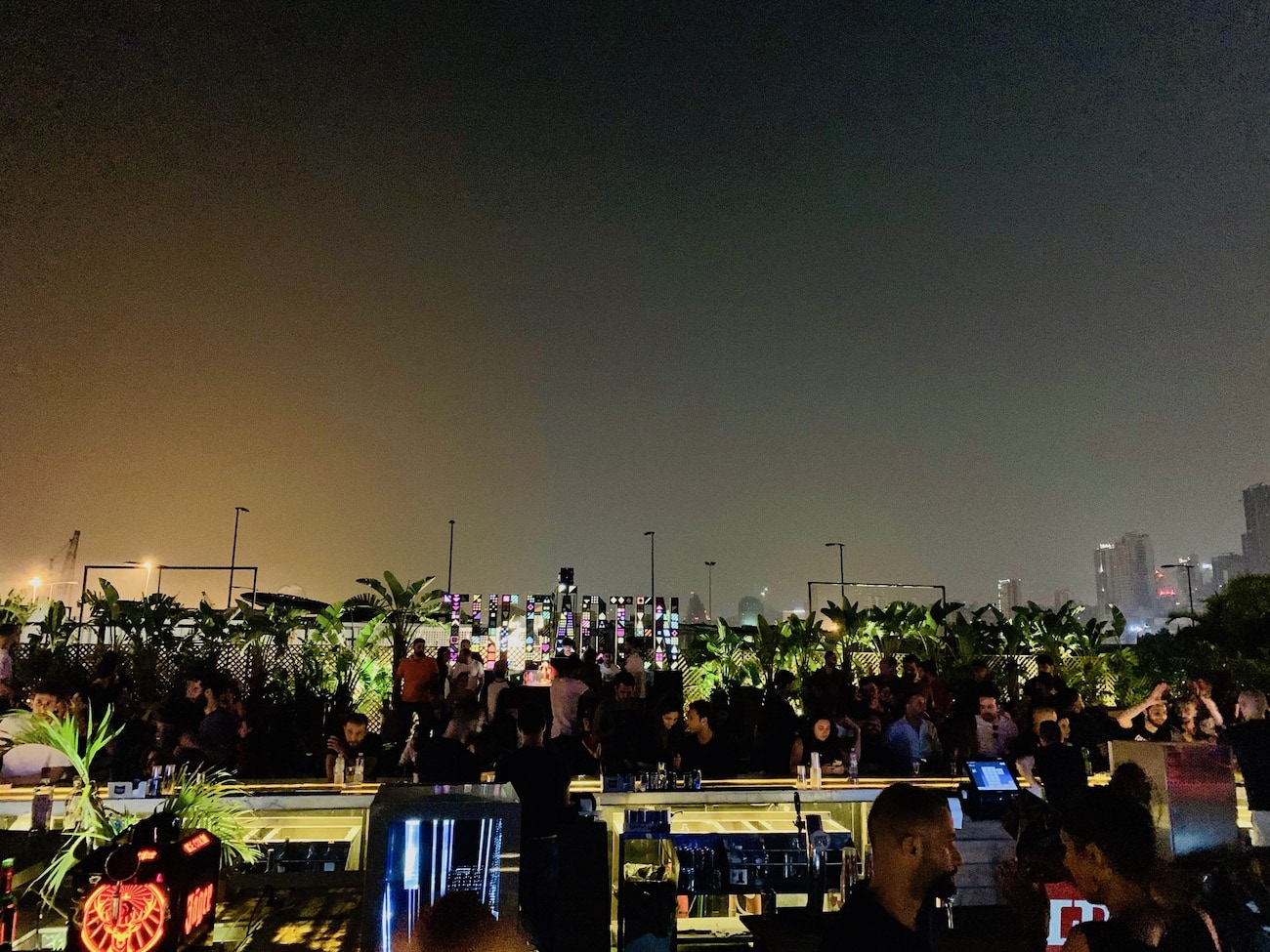
Smoking & Alcohol
With Lebanon being located in the “Middle-East”, many Americans cluster them into one giant country with the same rules and laws heard from the news. This is foolish thinking. As we have covered above, Lebanon is one of the most liberal (if not the most liberal) country in the Arab region. Alcohol is sold in most restaurants, cafes, markets and small convenient stores. Whether drinking on the streets is legal or not, it’s totally common for people to picnic with alcohol anywhere they decide to post up. Taking a drink into the car as a passenger is not a big deal. Drinking and driving is also common, so if you feel that your friend has had too much to drink, it’s best you take a taxi instead.
For those that do not smoke, you should be warned that Lebanon is a country filled with chain smokers. Smoking cigarettes and rolled up tobacco is everywhere, including inside restaurants and bars. It’s nearly impossible to avoid. Marijuana and Hash is strictly illegal though it is easy to find.
Food in Lebanon
Lebanese food is arguably one of the best you’ll find in the Middle-East. The finest ingredients of the Mediterranean mixed with the ancient recipes of the Arab world, the food here is really spectacular. Cuisine ranges from traditional Lebanese food to a fusion of all the ethnicities that have immigrated here in the past century. In Beirut, you’ll find a wide range of options, from family-owned small cafes to the finest luxury dining options. Craving Sushi, Indian, Korean or Mexican food? Yes, Beirut has all these options too.
As with any country, each region and village has it’s own specialties. So it’s worth asking the locals what their local favorites are. Seafood is also very popular, especially near the seaside along the coast. From Tyre in the south all the way north to Byblos and Batroûn.
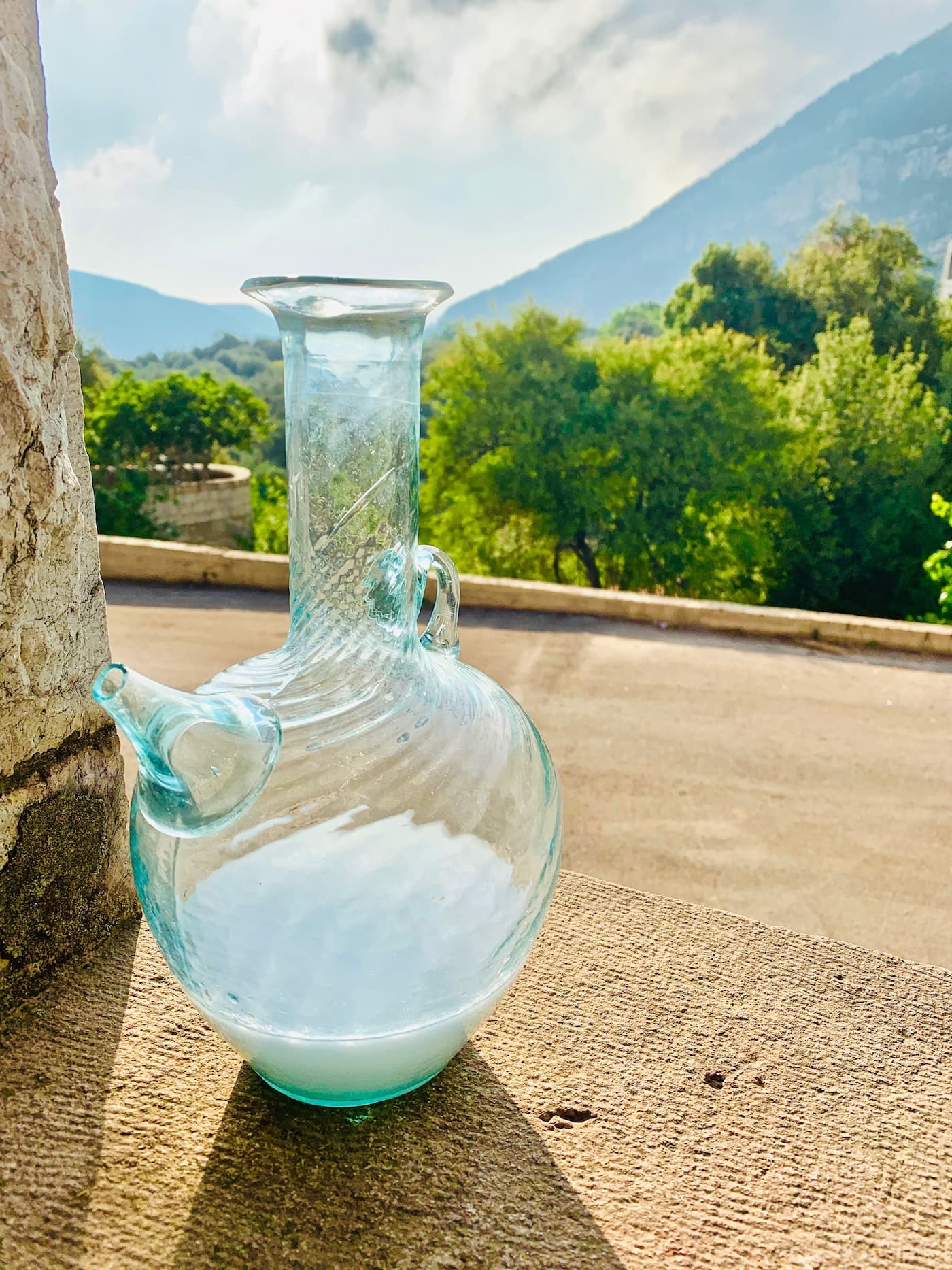
Arak is a white-anise flavored, Levantine unsweetened distilled spirit. This liquor typically contains 40-65% in alcohol content in the anise drinks family. I love this drink but it is definitely an acquired taste. You can say that it’s the most traditional, popular drink in Lebanon drank at home and in gatherings. Though the younger generations prefer beers and cocktails.
Many families make it at home and alcohol content can go as high as 95%. Arak is translucent, but typically one would add equal amount of water to dilute the alcohol that turns it into a cloudy white.
Arak is traditionally made of 2 main ingredients: Aniseeds and Grapes. It is closely related to: Rakı, Absinthe, Ouzo, Pastis, Sambuca, Aragh Sagi. And also popular in neighboring countries of Syria, Palestine, Israel, Greece and Turkey.


Lebanon is Known for the Arts
Lebanon welcomes artists and creatives. You can virtually fill your itinerary up for 2 weeks floating around various museums, artist popups and meetups. I attended the opening exhibit of “Traces of Drawings” at Nabu Museum in Chekka and was in awe by the liberal and cultural art displayed from the late 1800s. The endless creativity has carried on through today. There is no censorship of art as in other neighboring countries.

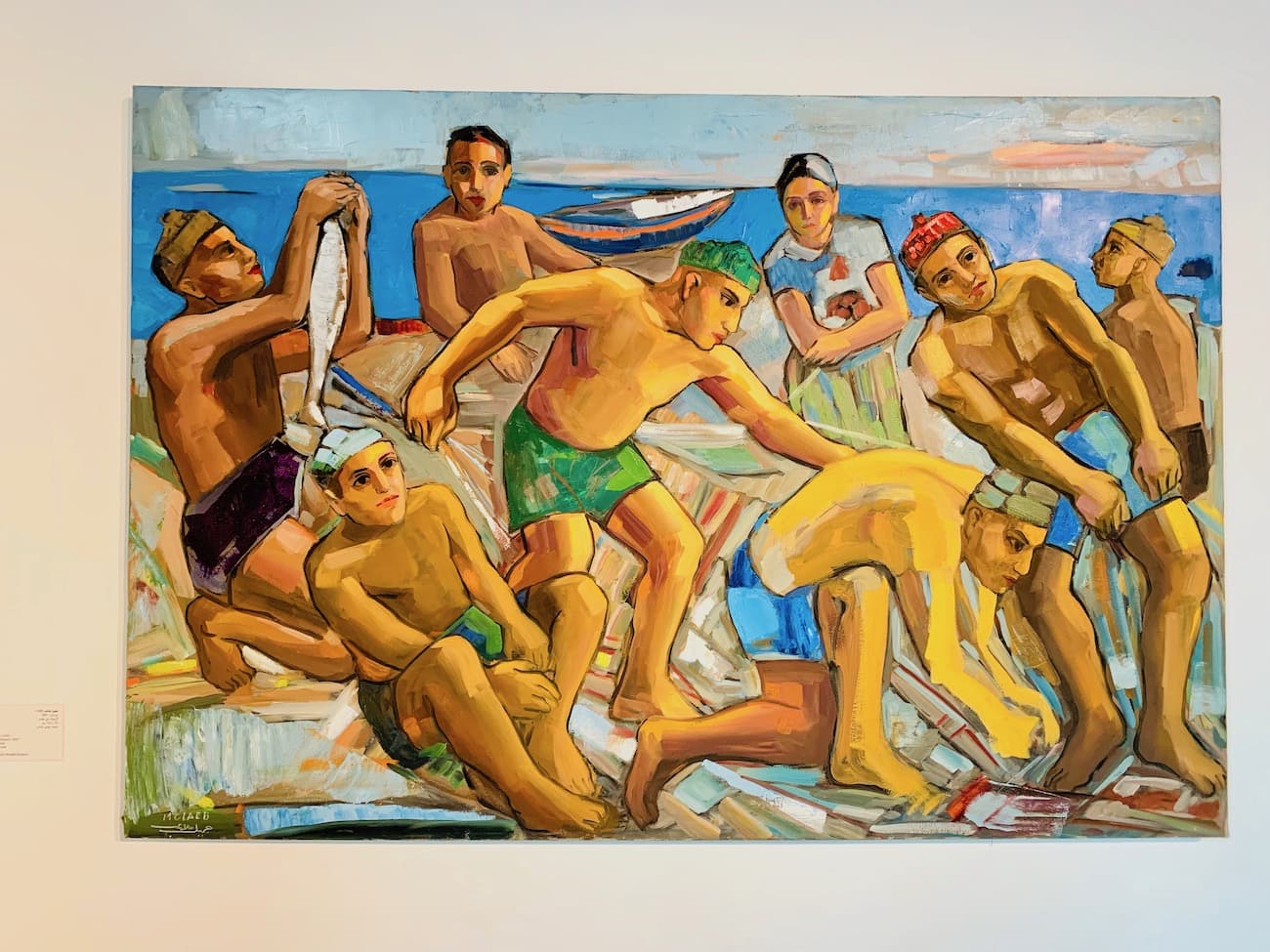
Arriving & Where to Stay in Lebanon
Beirut–Rafic Hariri International Airport (airport code: BEY) is where you would fly into. It only takes about 20-25 minutes to get into the main area of Beirut which should cost no more than $25 in a taxi.
Depending on your preference, Lebanon has everything from $25 rooms on Airbnb and hostels to 5 star luxury resorts. My number 1 preference is always airbnb as I get to have my own room, stay in a residential neighborhood, feel like a local and have access to a kitchen. Couchsurfing is also popular though I have not used them before.
Be sure to read my other posts on Lebanon:
- Safety & Misconceptions: Is it Safe to Travel to Lebanon in 2019?
- Beachtime: 22 Things to do in Batroûn, Lebanon
- Best Yoga Classes in Lebanon
- Beer Lovers: Tour a Microbrewery, Sunbathe & Surf Colonel Brewery
- Bike & Outdoor Enthusiasts: Tour Batroûn & it’s surrounding areas by Bike
- Art Lovers: Wine & Paint Night with Arts & Renaissance
- Published Magazine Article: Traveling in Lebanon
- Food lovers: Top 10 Food to try in Lebanese Cuisine



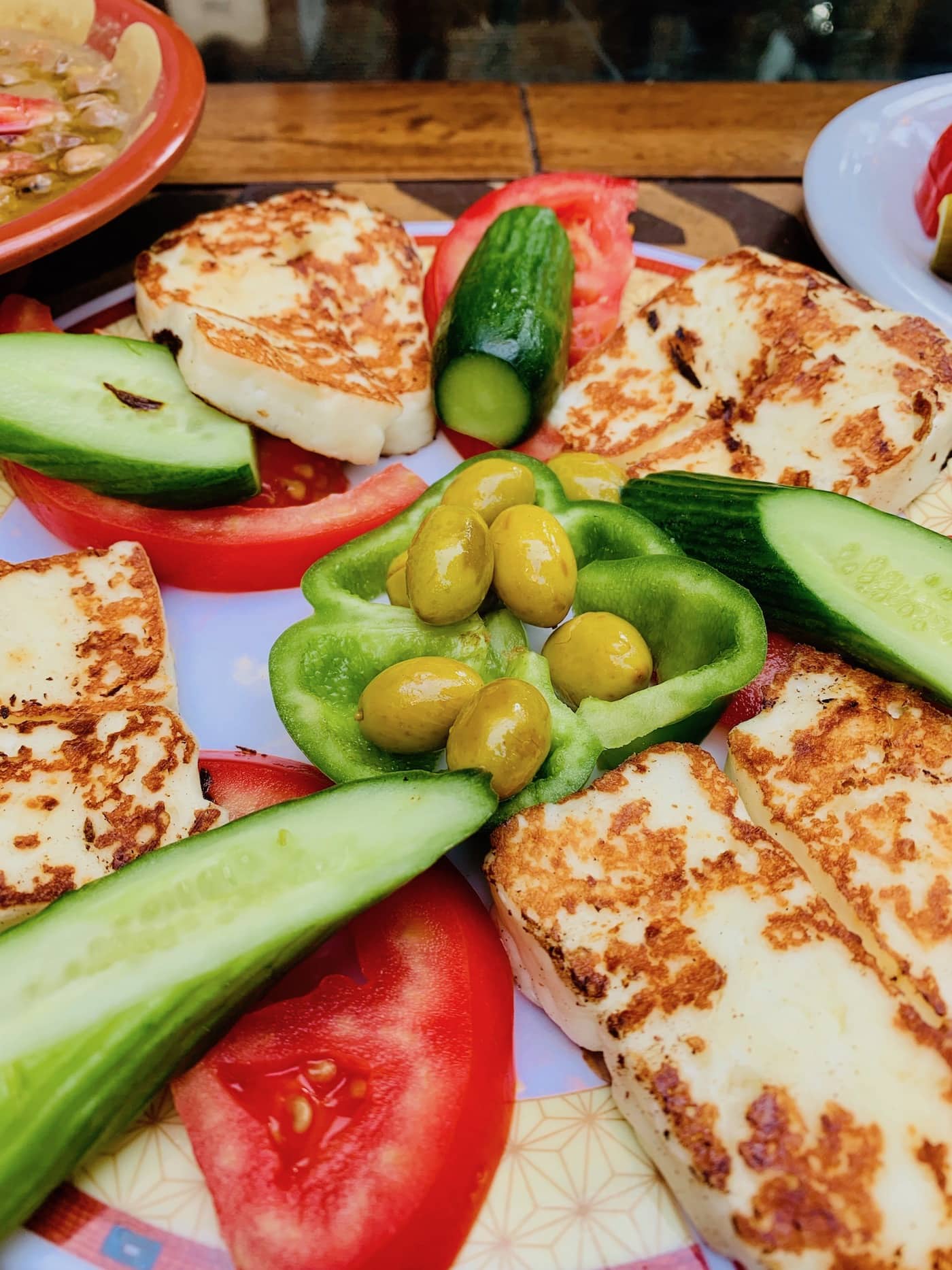

Pingback: The Inspirationals #6: Bohemian Vagabond, a Solo Female Traveler - BeFreeMySheeple by AdamFrancisco